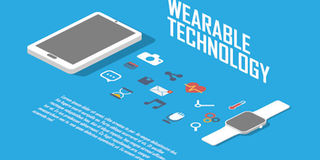Data privacy concerns over Internet of Things

Since so much data is collected through wearable devices, there is an intrinsic risk of data breach. Internet photo
What you need to know:
With Internet of Things, consumer devices, you are under surveillance. Implementing the data protection and privacy law is now more crucial than ever to protect users’ information, Christine Kasemiire explains.
The smart watch! It will receive calls, texts from your phone all while reading your medical vital signs. An accessory many wrap around their wrists, some for health reasons, others for the sake of looking “woke”.
It is evident from the Jumia interface that those wrist accessories are popular.
“The increase in health awareness by Ugandans and availability of affordable smart watches are some of the reasons smart watches are now popular in Uganda,” Mr Neville Igasira, chief marketing officer, Jumia Uganda says.
A smart watch is one example of an application of Internet of Things.
Internet of Things
Internet of Things, according to congressional research service (CRS) report 2020, is a system of interrelated devices connected to a network and/or to one another, exchanging data without necessarily requiring human to machine interaction.
The report cites smart factories, smart home devices, medical monitoring devices, wearable fitness trackers, smart city infrastructures, and vehicular telematics as examples of IoT.
While the vehicle telematics otherwise known as a vehicle monitoring system, is not as popular in Uganda, local developers are innovating.
IoT is revolutionalising various sectors including health, insurance, energy and security among others.
Youthful Anatoli Kirigwajjo, is one of the names behind the Yunga application. The startup connects neighbour to neighbour and neighbour to police in case of an attack or emergency as IoT helps to do the connection.
“Yunga has a feature of a bell that allows you alert someone at home that you are at the door. This can be rang before the person reaches the door step. We created this app because we realised the likely danger that is associated with waiting for someone to open the front door, you can get hacked,” he says.
He adds; “We have already installed these systems in some places and they are very glad. The idea of linking it to your neighbour is because in most cases, a neighbour is usually the first responder,” he explains adding that the police is also looped into the system in case help is needed.
Increase in internet penetration
Currently, Uganda’s internet penetration is only at 38 per cent partly because of the cost of data.
It is believed that increased usage of internet could bring the cost down.
In a world with a total population of 7b people, IoT analytics, a market research firm indicates that IoT connected devices were 9.9b in 2019.
The figure is expected to grow to 21.5b in 2025.
This is an indication that IoT could in turn increase the use of internet especially for consumer devices.
It is without a doubt that IoT is paramount to solving life’s challenges, but it is not without it dangers.
Data privacy needed now more than ever
With IoT consumer devices, you are under surveillance.
Ponder on the fact that with a smart watch, a company is obtaining your medical information and routines.
And a smart home knows when you are home, when you are not, with whom you hang around, what you say, what you watch among others.
It is terrifying. Now imagine that information was leaked to the public.
It is worse off for medical IoT because devices such as pacemakers determine your lifeline.
“Increased data collection and usage may yield innovation, technological progress, and improved utility, but could also lead to the erosion of privacy and data exploitation without consent,” the CRS report reads in part.
Cyber security in the wake of IoT should be top priority if the innovations want to grow.
Implementation of the data protection and privacy law is now more crucial than ever to protect users’ information.
The likelihood of data mining and analysing information for sale to third parties is another challenge associated with IoT.
Data privacy issues
With IoT consumer devices, you are under surveillance.
Ponder on the fact that with a smart watch, a company is obtaining your medical information and routines.
And a smart home knows when you are home, when you are not, with whom you hang around, what you say, what you watch among others.
It is terrifying. Now imagine that information was leaked to the public.




